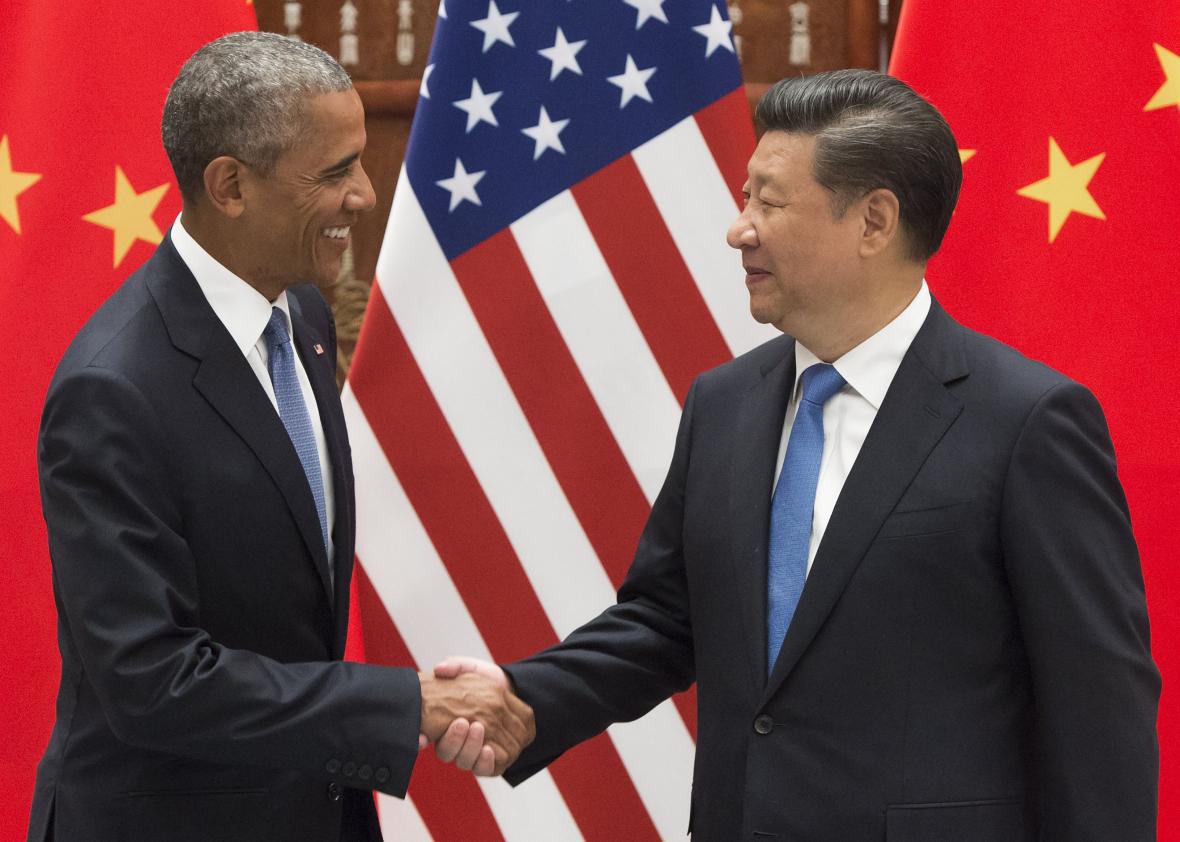The United States and China put differences aside for a few hours on Saturday as President Obama and President Xi Jinping formally committed their economies to adhere to the Paris climate deal. The move means the world’s two biggest carbon emitters have agreed to join the deal in a move that could accelerate implementation of the landmark Paris agreement before the end of the year. Obama was already in China for the upcoming G20 summit, and on Saturday both he and Xi submitted documents to U.N. Secretary-General Ban Ki-moon, effectively certifying that they had set targets to cut carbon emissions.
Even though the international climate agreement was signed in Paris in December, 55 countries representing at least 55 percent of global emissions must ratify the deal in order for it to formally enter into force. Before Saturday, only 24 countries had ratified the deal, and they represented a paltry 1 percent of global emissions. Things are set to accelerate now that China and the United States, which together produce around 38 percent of the global carbon dioxide emissions, have also formally signed up.
“We have a saying in America that you need to put your money where your mouth is,” Obama said. “And when it comes to combating climate change that is what we are doing … We are leading by example.”
The ratification by China and the United States ultimately marks “a big step toward turning the Paris climate agreement into reality,” said BBC’s environmental analyst Roger Harrabin. “This will put pressure on G20 nations over the weekend to move faster with their pledge to phase out subsidies to fossil fuels.”
The move also means it is more likely that the Paris climate deal will enter into force by the end of the year, i.e. while Obama is still president. That would remove any kind of fear that could exist around the globe that Republican presidential candidate Donald Trump would make good on his promise to undo the deal if he is elected president. But if the agreement “were to come into force before he came into office, that would become difficult if not impossible under US law and political conventions,” notes the Guardian.
Still, even though it would be “difficult” and “unprecedented,” Trump could still ignore the country’s commitments. The Washington Post explains:
Once the agreement enters into force, its language in Article 28 states that a party cannot then withdraw for three years — and there is yet another year for the withdrawal to take effect. The length, in short, of a presidential term.
Trump, if elected, could simply ignore the agreement, and the international sanctions for doing so are not very severe, primarily calling on any wayward country to explain its lack of cooperation.
